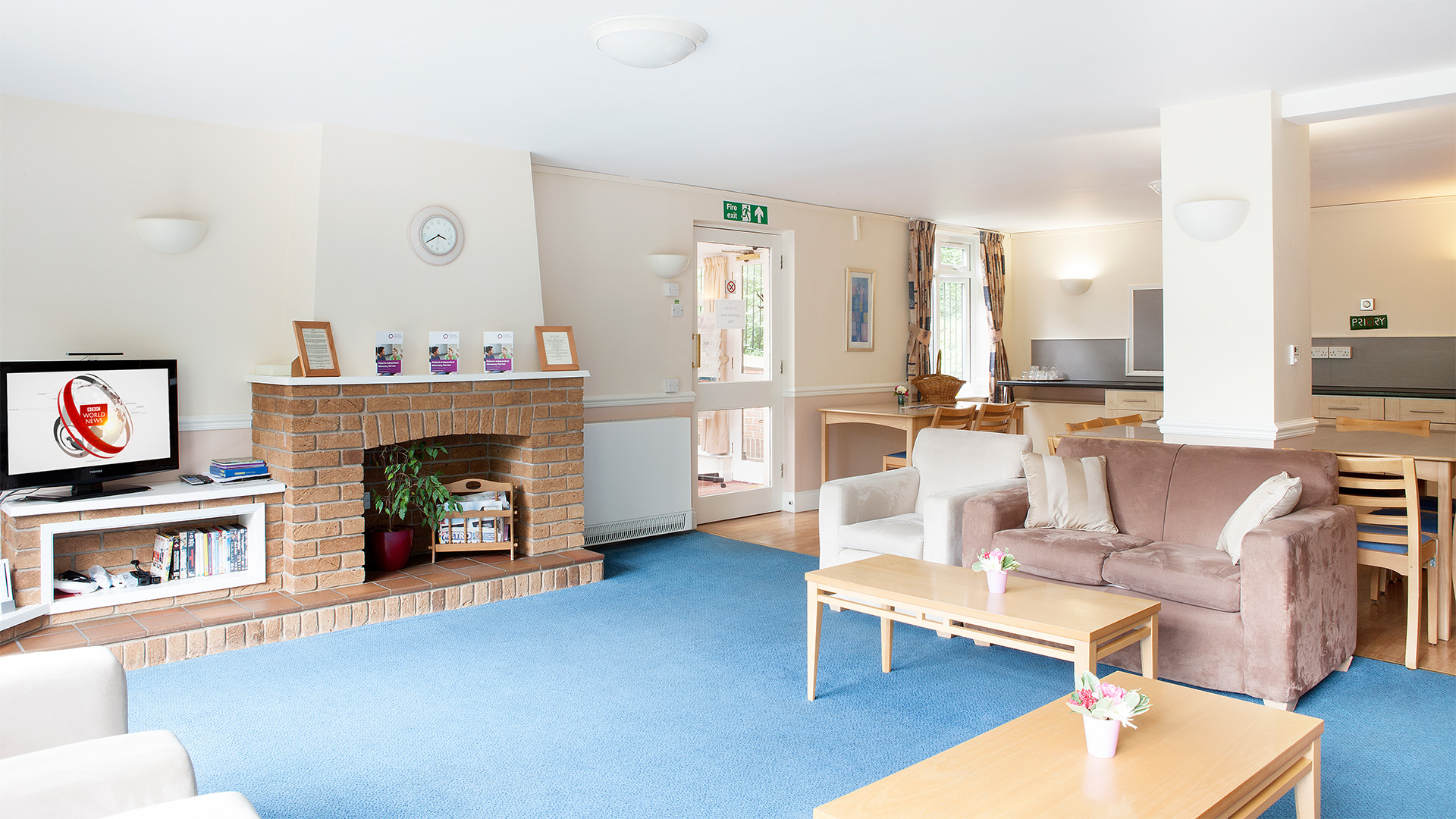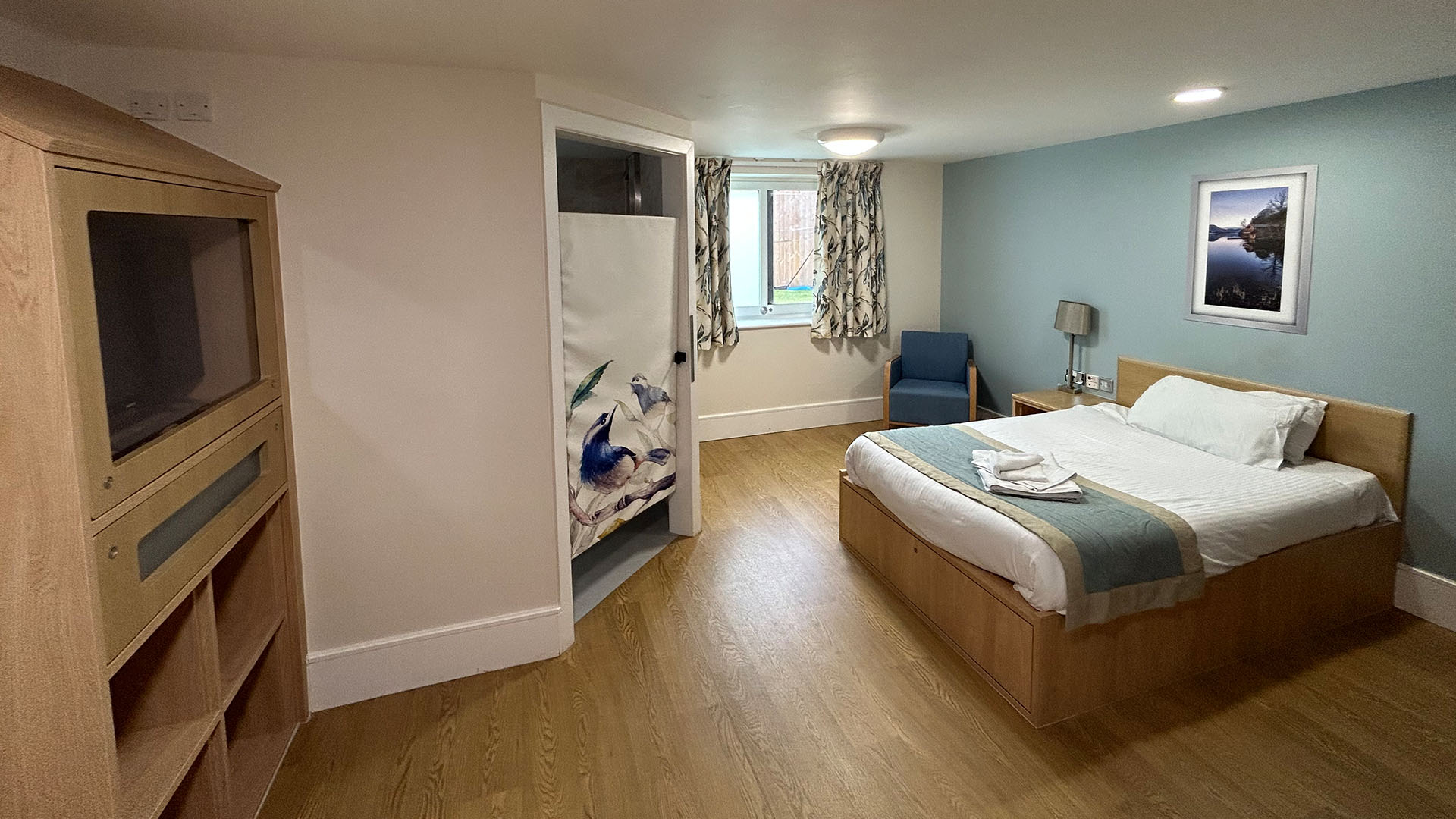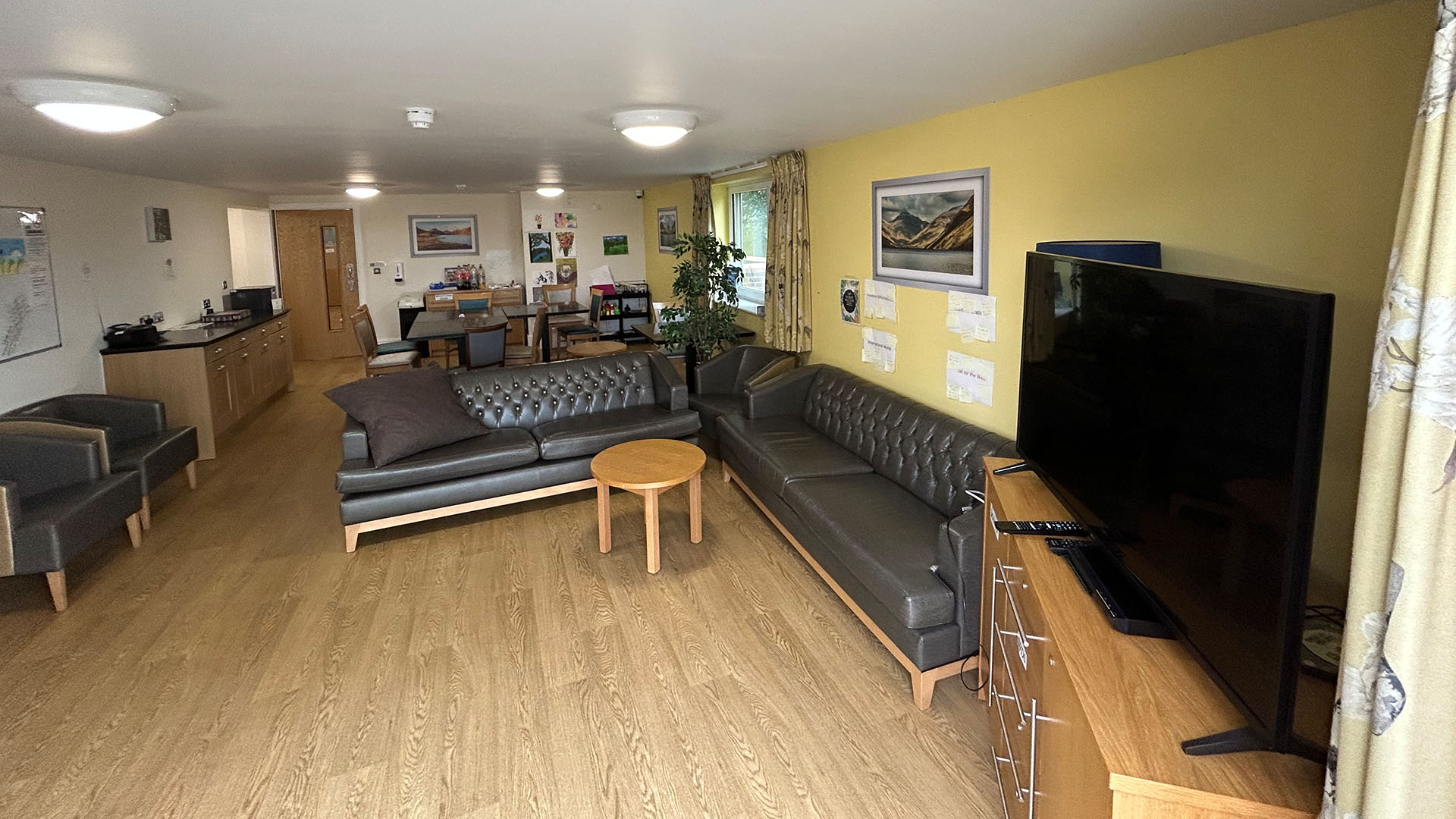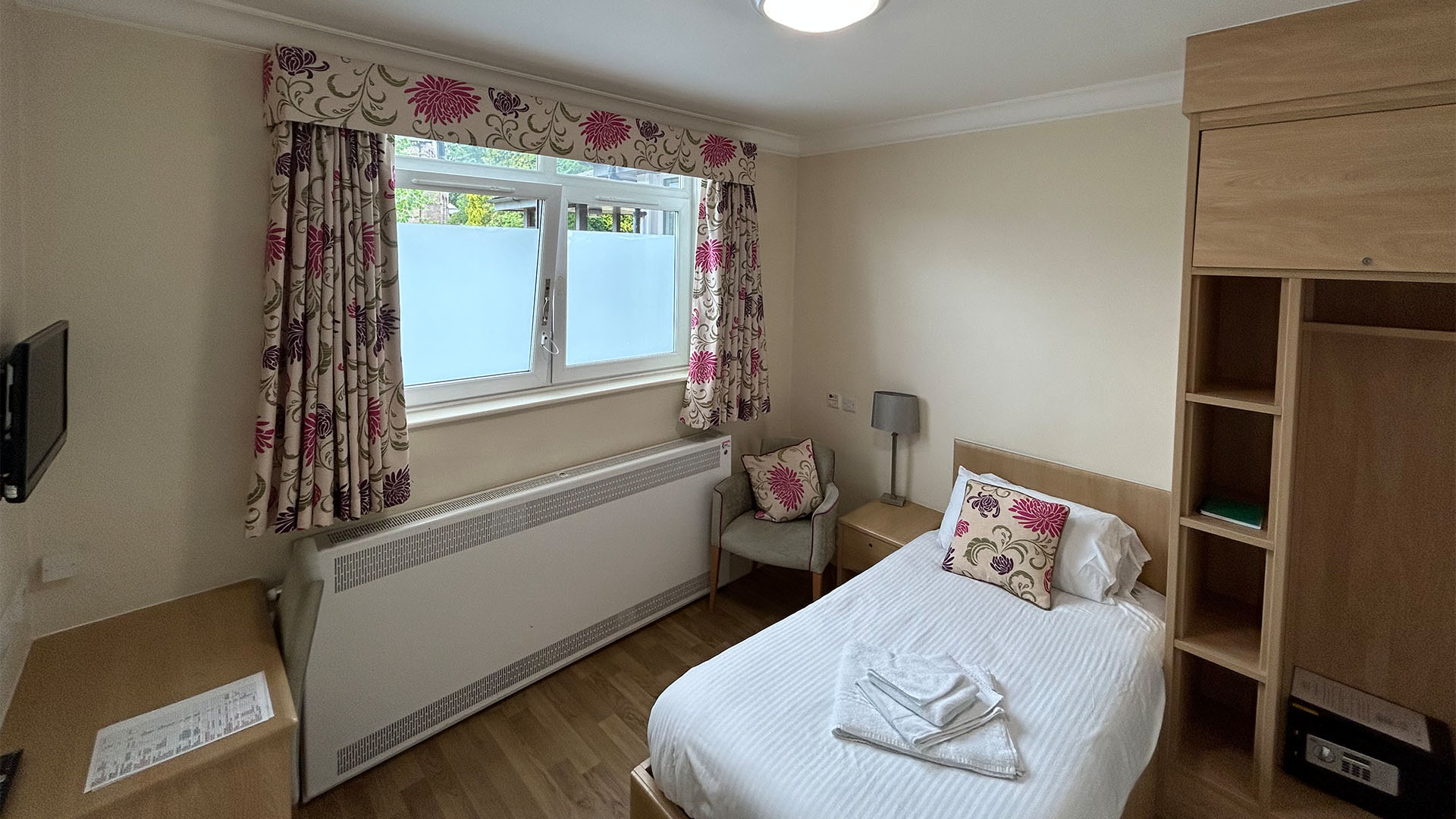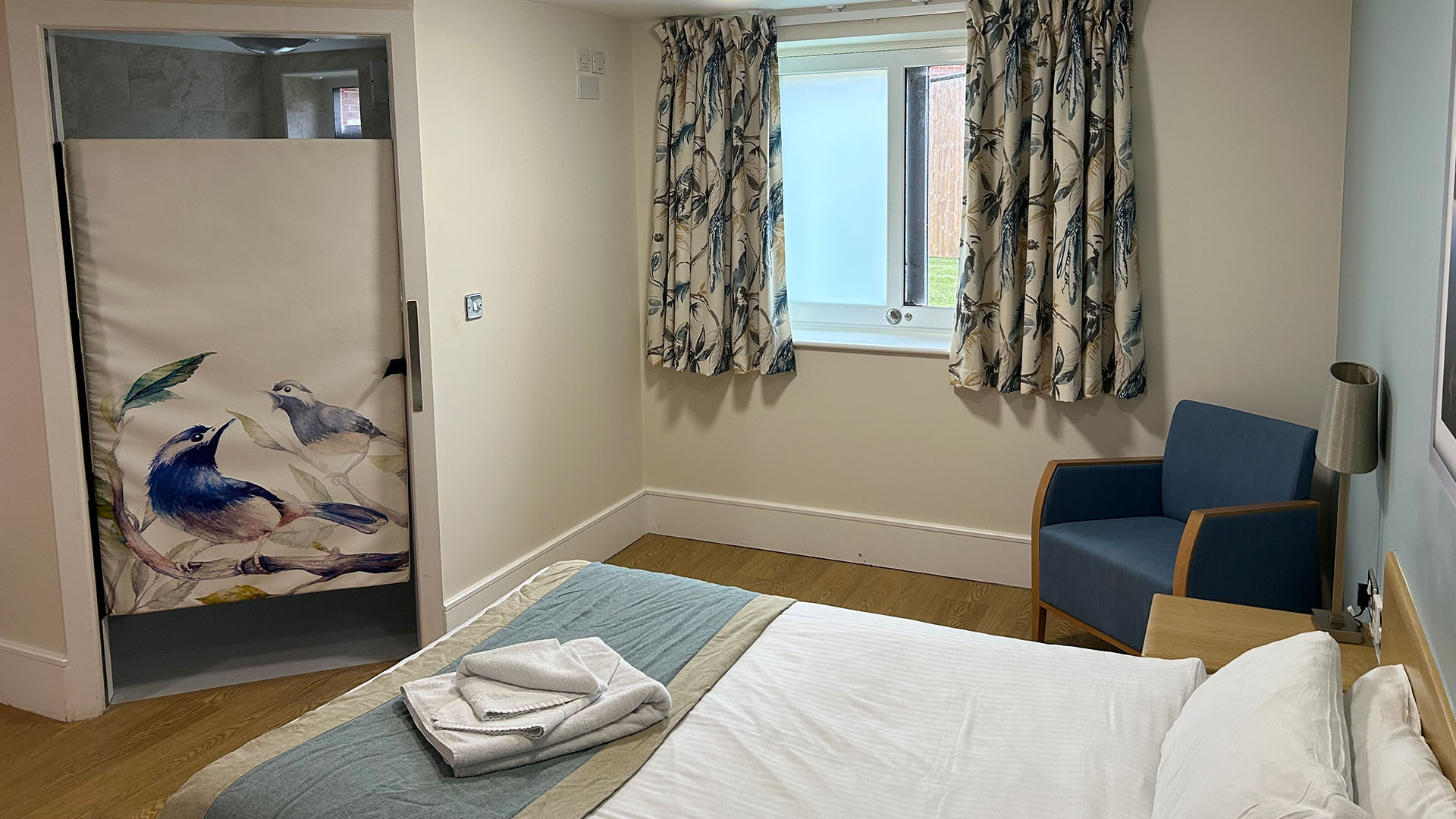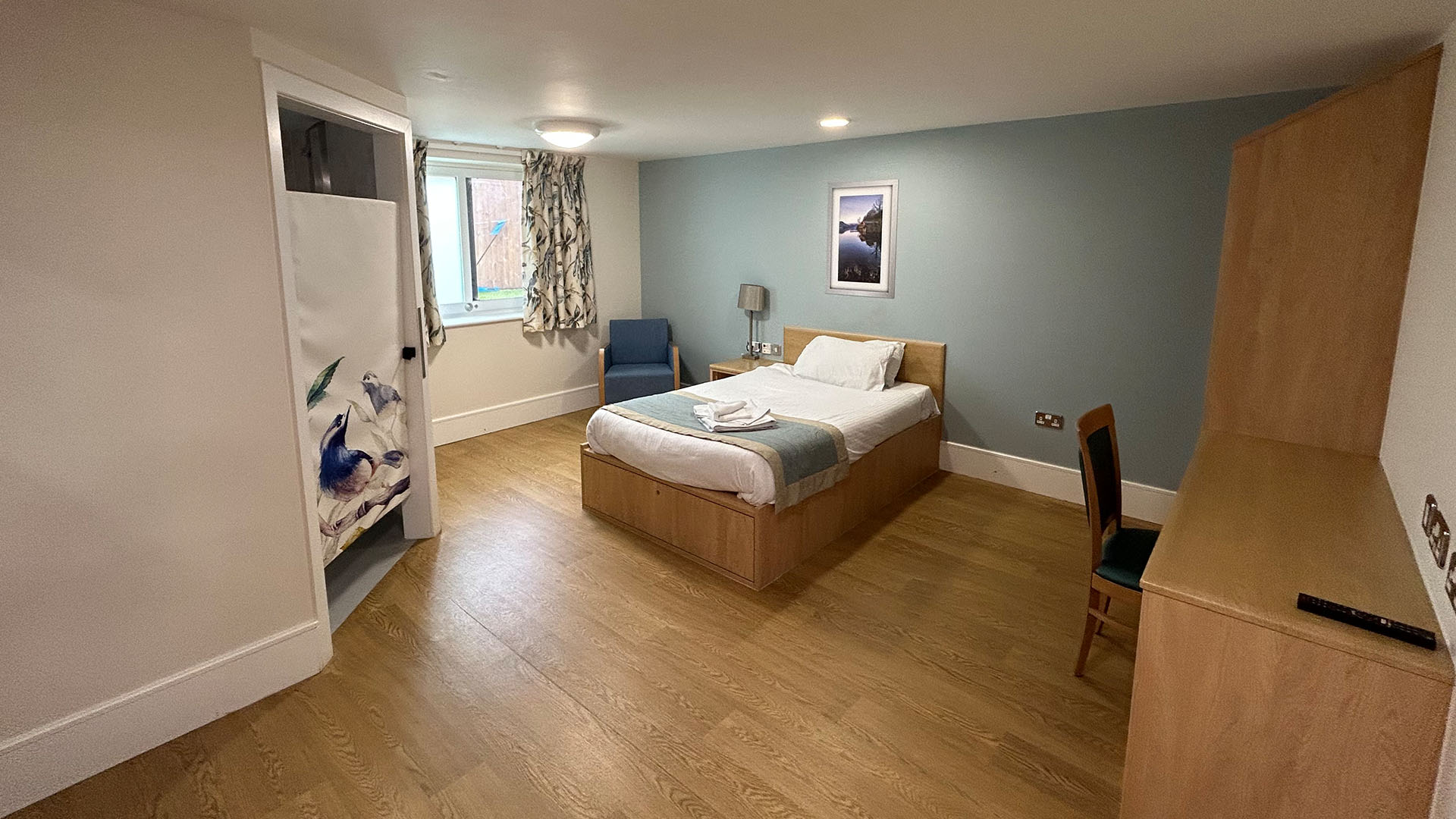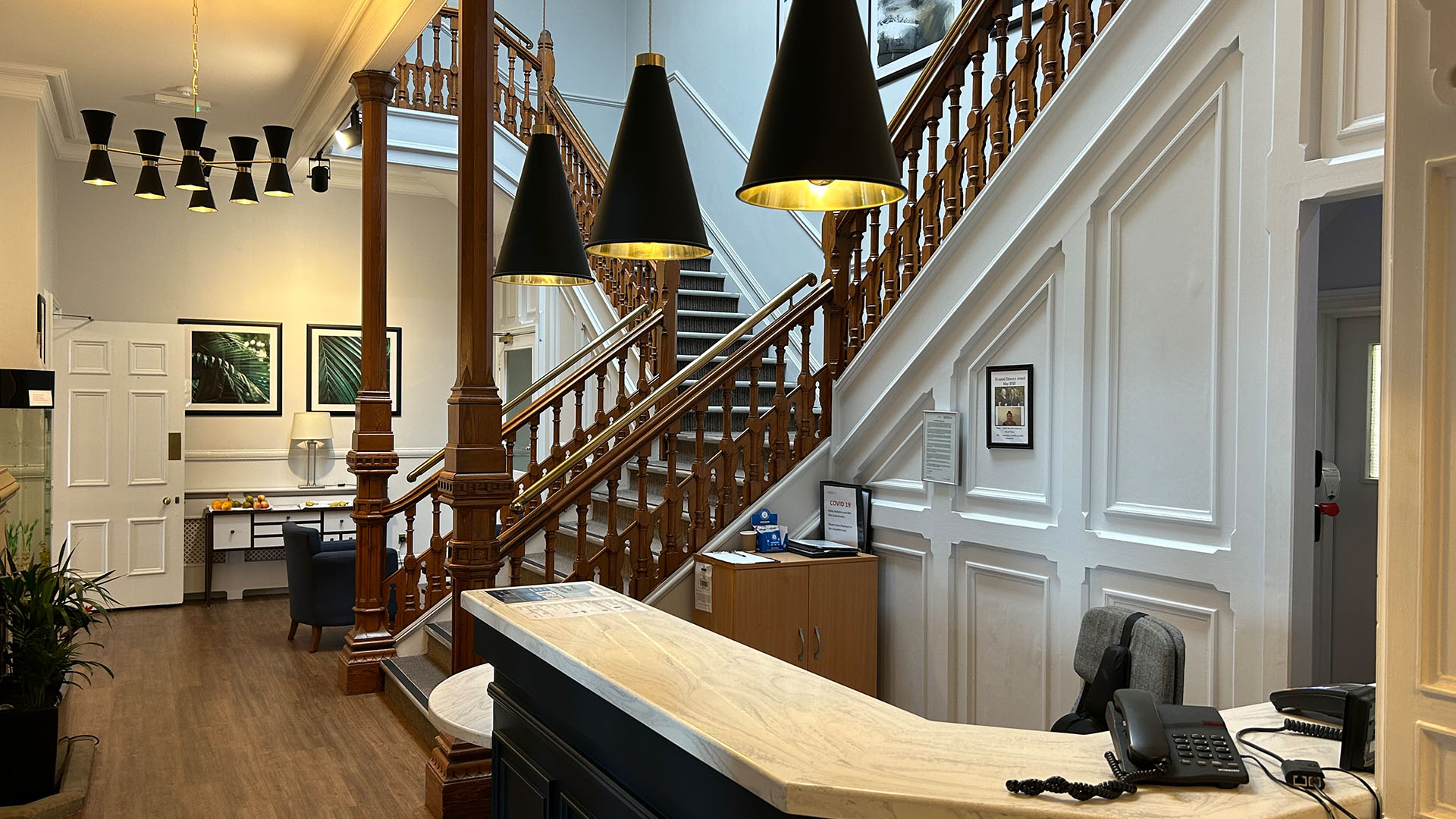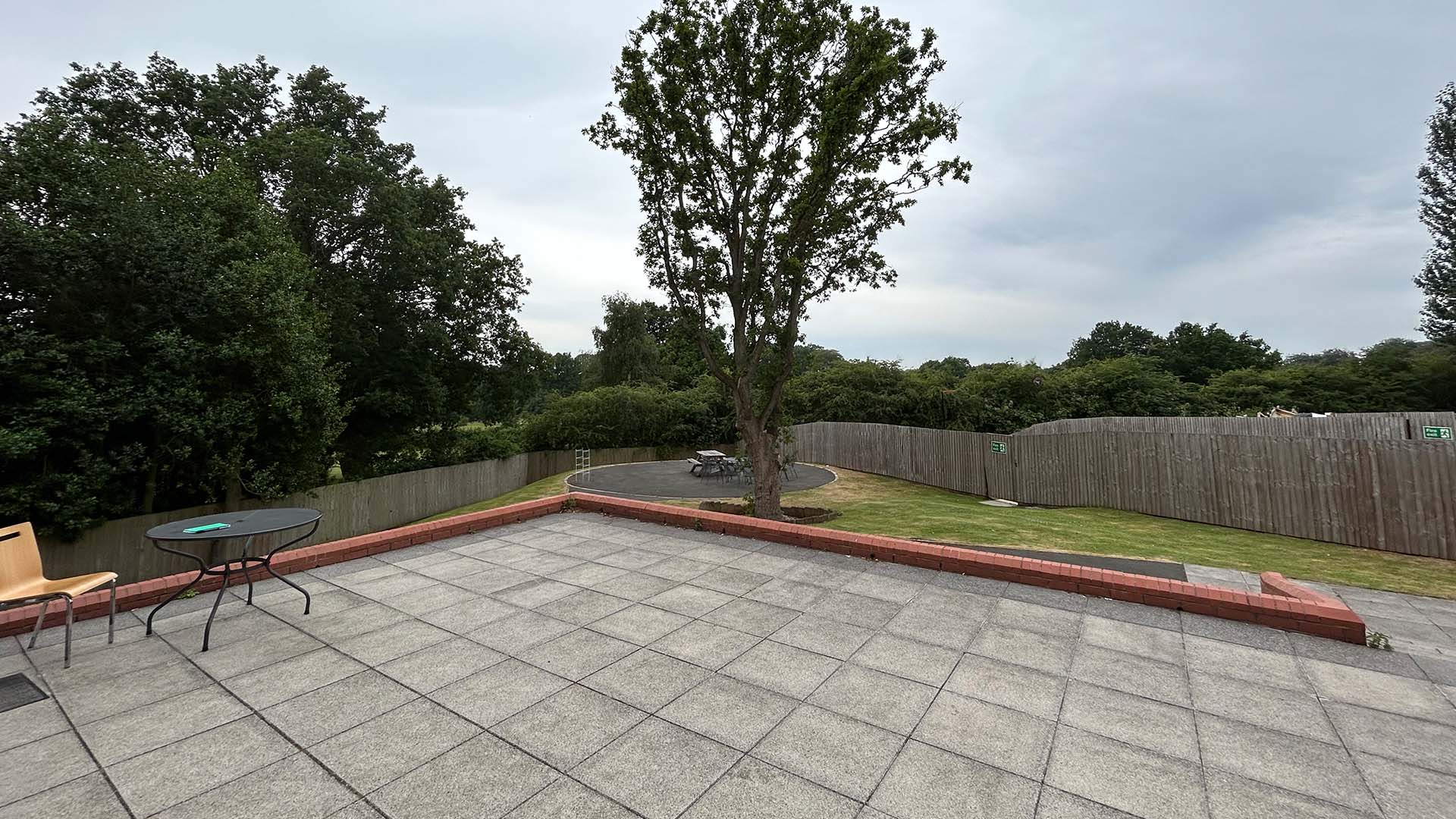About this location
Priory Hospital Altrincham is a leading mental health hospital based in Cheshire. Set amongst beautifully landscaped gardens, we offer expert treatment in partnership with the NHS for child and adolescent mental health services (CAMHS) eating disorders and adult acute mental health.
Priory’s acute and PICU services aim to allow more people to be treated closer to home and we support the NHS to repatriate out-of-area patients back to local areas.
Services at a glance
Click here to enable this content
Services
Our acute services offer round-the-clock assistance in times of emergencies. Our specialist inpatient acute teams are committed to providing the highest quality of care, supporting patients with a wide range of mental health conditions in safe and highly therapeutic environments.
Ward break down
- Tatton Ward – 17-bedded ward for males and females
Conditions treated
We are able to support people with:
- Complex mental health needs
- Violence and aggression
- Varying levels of risk
- Risk of suicide
- History of failed placements
Treatment approaches
At Altrincham, we offer an individualised, person-centred approach for all of our patients. Our aim is to maintain the safety of everyone we support, promote recovery, deliver holistic care and empower each person to improve their wellbeing.
Our assessment and treatment options are overseen by a full and diverse multidisciplinary team (MDT).
People tend to stay in our acute service on a short-term basis, with the average being around six weeks.
Our team
- Consultant psychiatrist
- Specialty doctor
- Occupational therapist (OT)
- Psychology assistant
- Activity co-ordinators
- Ward manager
- Deputy ward manager
- Mental health nurses
- Healthcare assistants
Therapeutic and community-based activities
We offer a range of therapeutic and community-based activities as part of a full treatment programme. We want to support people to become more confident and independent, preparing them to move through their treatment pathway towards community living. Everyone we support has an input into the activities provided, which are arranged by the activity co-ordinators.
Our therapeutic and community-based activities include:
- Activities programme
- Psychology sessions
- Music therapy
- Yoga sessions
- Occupational therapy groups
- Pet therapy
- Psycho-education, relaxation, distraction, wellness, exercise, self-soothing, healthy living and recreation activities
Our facilities and environment
Our bedrooms
Exclusion profile
- People under the age of 18
- People with a history of arson
Pathways
Priory’s network of high quality facilities enables us to offer joined-up care pathways with our dedicated residential services. We offer programmes which integrate healthcare treatment and therapy, which are tailored according to individual needs, in an appropriate setting. Our strength is that we can provide a seamless transition for the individual as they progress between higher and lower dependency services.
We have close links with Priory Adult Care services but the majority of the people staying with us move back into the community, when they are ready.
Through our dedicated CAMHS services, we aim to meet young people’s mental health needs safely and effectively, in the least restrictive environment, whilst maintaining their privacy, dignity, sense of self, and relationships with those close to them.
Ward break down
- Rivendell Ward - 15-bedded ward for males and females, aged 12 to 17
Conditions treated
We are able to support people with eating disorders, including:
- Anorexia nervosa
- Bulimia nervosa
- Binge eating disorder (BED)
- Other specified feeding or eating disorders (OSFED)
We can also support people who have body image and self-esteem issues alongside their eating disorder.
Treatment approaches
At Altrincham, we offer an individualised, person-centred approach for all of our patients.
Our team of specialist clinicians work with young people who are in need of a supportive and caring environment to undergo treatment for an eating disorder. This treatment is aimed at females and males, aged up to 18 years, with a diagnosed or undiagnosed eating disorder. We provide individually tailored care programmes, which address the physical symptoms of their eating disorder as well as any related psychological issues which may have contributed to it.
The aim of our service is to provide a care programme that enables the young person to overcome their illness and lead a happy, fulfilled life that is built on a healthy attitude towards food. There is a variety of staff here to provide help, support and advice throughout the admission.
We are accredited by the Quality Network for Eating Disorders (QED) and the Quality Network for Inpatient CAMHS (QNIC).
Our assessment and treatment options are overseen by a full and diverse MDT.
We offer:
- Occupational therapy (OT)
- Art therapy
- Family therapy
- 1:1 therapy
- Group therapy
- Nasogastric (NG) feeding, if needed
If a young person is struggling or refusing an oral solid diet, a Fortisip diet may be offered as a replacement. Fortisip is a therapeutic food manufactured/produced by Nutricia. It is a ready-made milkshake style drink for patients who cannot consume enough solid food to maintain a balanced diet. Fortisip contains proteins and the vitamins, minerals and trace elements needed for a nutritionally complete diet.
At Priory Hospital Altrincham, we also follow the Maudsley Model approach to eating disorder treatment, which is an intensive inpatient treatment, where families play an active and positive role in order to:
- Help restore the young person’s weight to normal levels expected, given their age and height
- Hand the control over eating back to the young person
- Encourage normal adolescent development through an in-depth discussion of these crucial developmental issues, as they pertain to the young person in our care
We work closely with families and carers to help support the young person through their current difficulties and feelings, so they can move forward in their life. Our experience is that it is usually a partnership that leads to recovery – patients, parents and staff talking and doing things together.
Young people usually stay with us on a medium-term basis, usually an average of six months.
We also have an education team, that will assess every young person and make contact with their home school/college, where a full handover will be given. This ensures a smooth transition back into mainstream education following a young person's discharge, and to make sure all young people’s educational needs are met. We have our own educational department on hospital grounds, where young people can access computers and have support to engage in their school work.
Our team
- Consultant psychiatrists
- Specialty doctor
- Psychologists
- Therapists
- Dietitians
- OT
- Registered mental health nurses and registered sick children’s nurses
- Eating disorder ward manager
- Deputy ward manager
- Healthcare assistants
- Mental health nurses
- Social worker
- Specialist eating disorder training
- NG feeding training
Therapeutic and community-based activities
Our therapeutic and community-based activities include:
- Weekly 1:1 session with a dietitian
- Creative and educational groups
- Baking
- Psychology sessions
- Exercise support
- Programme of activities
- Food skills group
- Coffee club
- Book club
- Music group
- Creative expression group
- Walks
- Physical education classes
- Education classes
- Psychology groups
- Individual psychological sessions
- Yoga sessions
- Art therapy
- Pet therapy
- Daily dietetic input
- Family therapy
Our facilities and environment
Our bedrooms
Exclusion profile
- People over the age of 18
- People who do not have a primary diagnosis of an eating disorder
Pathways
Priory’s network of high quality facilities enables us to offer joined-up care pathways with our dedicated residential services. We offer programmes which integrate healthcare treatment and therapy, which are tailored according to individual needs, in an appropriate setting. Our strength is that we can provide a seamless transition for the individual as they progress between higher and lower dependency services.
We work with local provider collaboratives, as well as the funding bed area, to help young people approaching the age of 18 to access a service closer to their home, if possible. Depending on how a young person’s recovery goes, they will be discharged once they have reached their target weight and are healthily managing a maintenance diet. Discharge dates will be discussed in care programme approach (CPA) meetings, and are usually agreed around 4 to 8 weeks in advance. This gives the young person time to integrate back into school/college, and have extended home leave. This period of time also allows us to give family members and the young person support and advice in preparation for discharge.
On discharge, we hope that the young person and their family will have been given enough support and education to enable full recovery. We understand that this can be a very daunting time for the young person and their families to go back to ‘normal’ routines, and we will assess the support that they may need, prior to discharge. We will liaise with the young person’s GP by letter regarding their admission, progress and discharge. Our education department will also keep schools and colleges informed of the young person’s progress and recovery, and support that can be provided will be discussed throughout the admission.
Occasionally, if the young people staying with us are highly motivated, they may be discharged early to step down into day care. Day care can also be considered when there are limited community services available in the young person’s local area.
Education provision
As part of our CAMHS service, we also provide an Ofsted-registered independent school, North West Hospital School, which allows our residents to access a high quality education curriculum. Our priority is to provide everyone who stays with us with the care and education they need to go on to live a fulfilling and happy life.
You can contact the Head Teacher, Katie Mason, for additional information.
Information for family and friends
How is treatment accessed and funded?
We don’t take referrals directly from individuals and families. Instead, the first step will be for you to reach out to the person’s GP so that they can be referred and funded through the correct NHS channel. Depending on the type of support needed, this could include local authority funding, NHS funding, joint funding between the local authority and NHS, or direct payments. Please note, referrals for NHS or local authority funded services must come from a referring organisation.
Tatton Ward is block booked by the North West Bed Board and they determine which service users are referred.
We also provide a private service where funding can be accessed via private medical insurance, or individuals can self-pay. For more information, please visit Priory Hospital Altrincham.
How to make a referral
Our customer service centre provides 24/7 support for NHS mental health enquiries and referrals. Our customer referral co-ordinators can support you from your first call right through to the enquiry conclusion, providing updates throughout the process. We offer 24/7 crisis referrals, fast access to bed availability and placements, and a single access point for end-to-end enquiry management.










